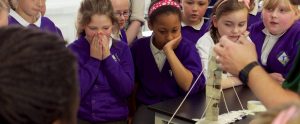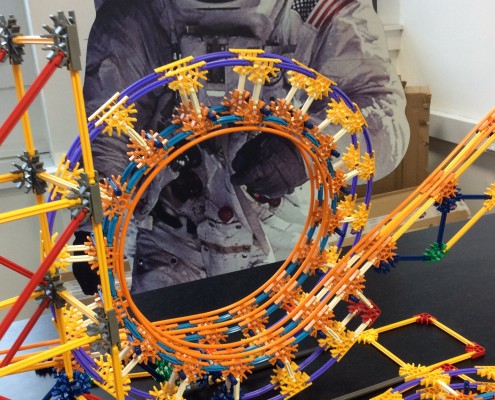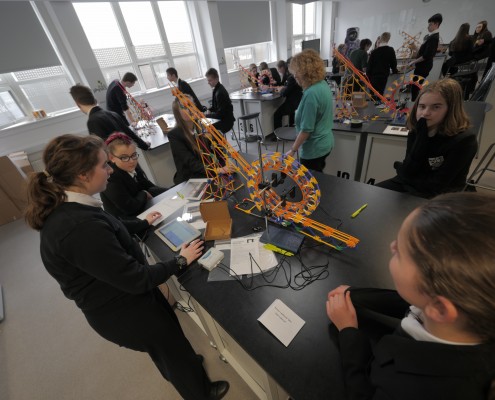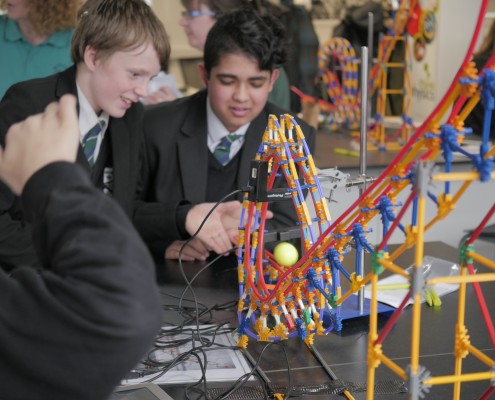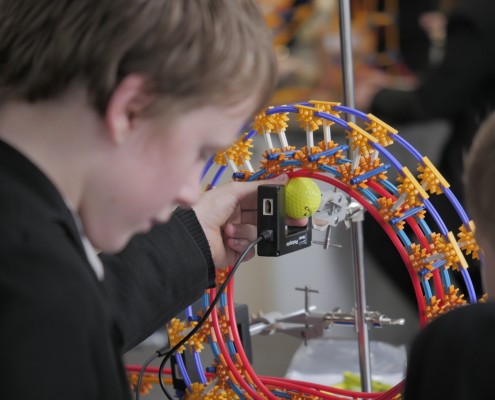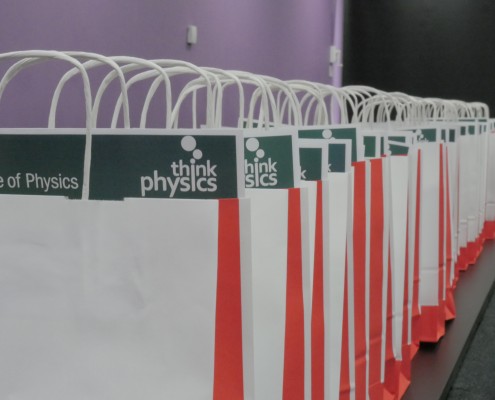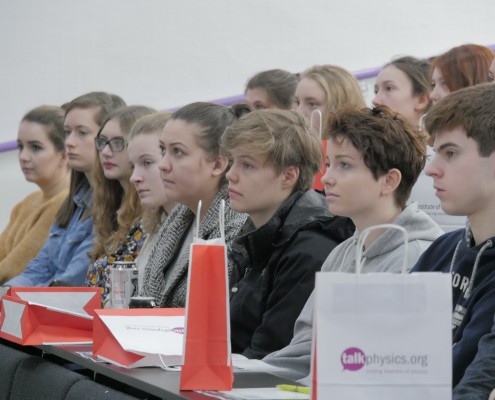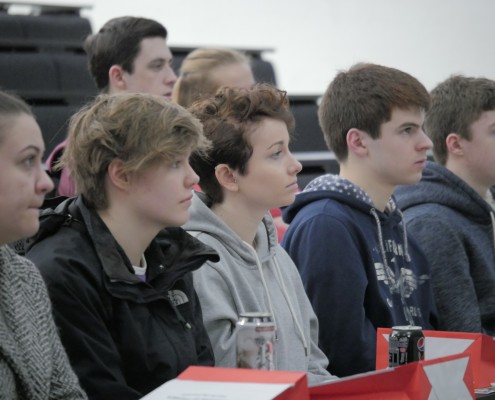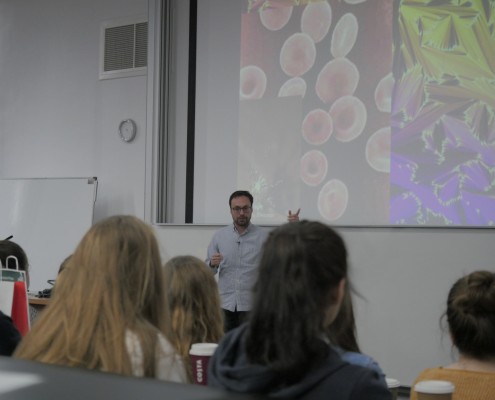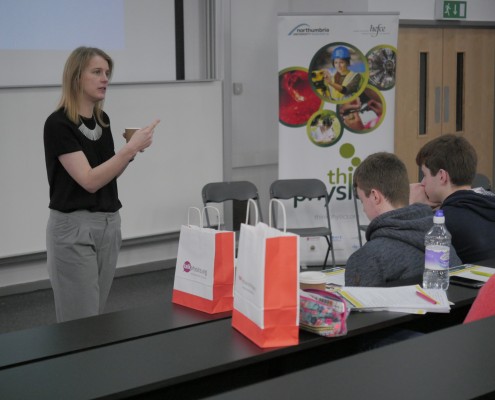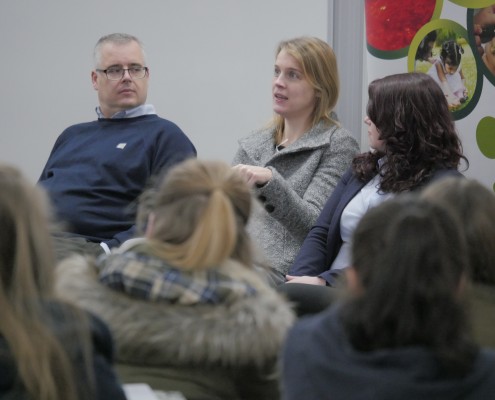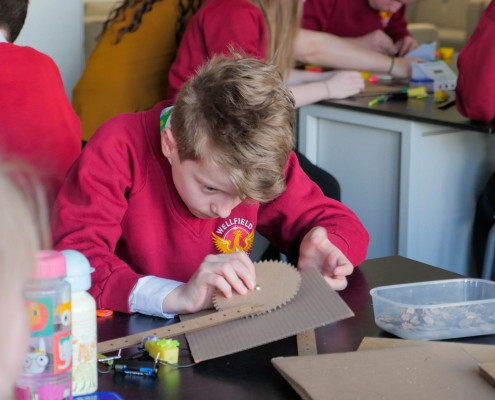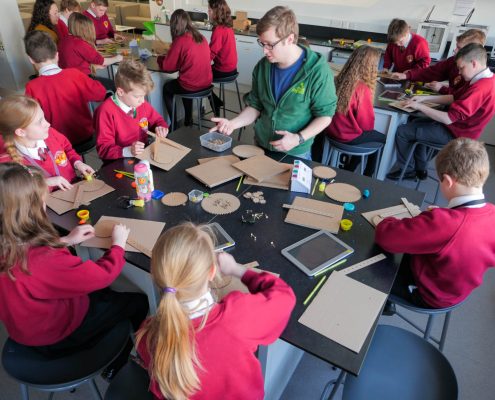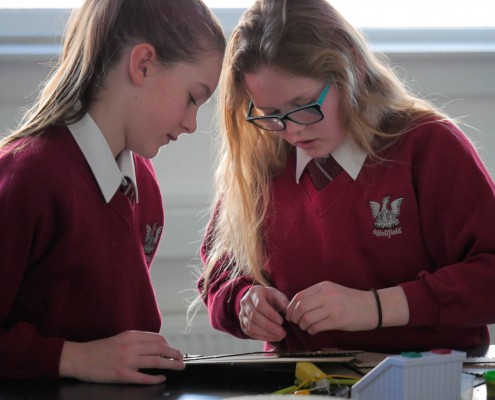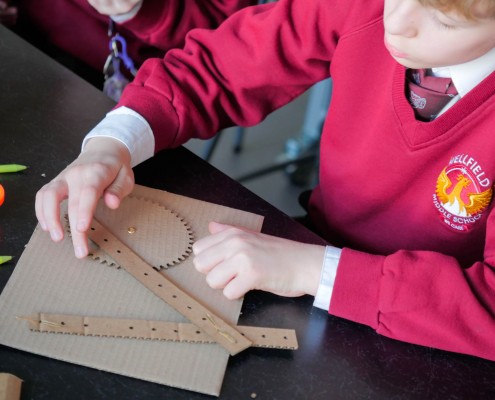When you were young, did you want to be a vet, a doctor, a teacher? A sports person, nurse, actor, singer, gamer, astronaut, zoo keeper, police officer?
That list doesn’t change much over the years. Jobs like ‘professional gamer’ are new, but the list of jobs most ten year-olds today are aware of is mostly similar to the list you could have made ten years ago, or even twenty.
Not many children would proclaim that they want to be a thermodynamics engineer, a solar physicist, or an earth observation programmer. Those are all exciting career routes, but most of us have no idea they even exist, and even if we do we’re maybe not entirely sure what all the words mean. So it’s no surprise that young people are more aware of and more comfortable talking about the list of familiar jobs we started with. We know what firefighters do, we don’t have to look it up before we can start trying on that role in the playground.
Research suggests that we start thinking about future careers from a very young age. That’s no great surprise, but perhaps unexpectedly, research also suggests that we start making decisions early too. Not “I’m going to be a quantum-computational geneticist” decisions, but more fluid decisions about the types of careers we feel we can and can’t have. Understandably, children in families where a parent or close relative is a scientist or engineer tend to have a greater awareness of jobs within the science, technology, engineering and maths (STEM) sector. That awareness can help them have a broader view of what’s possible for them, in turn helping them avoid making early choices which limit possibilities later.
The term used to describe this is ‘science capital’. The ASPIRES research project [2013] discusses this at length – see our primer on science capital for more background, and we’ve a page about the ASPIRES project.
But, if you are from a family of non-scientists, where do you get your science career, advice and information from? Over the past couple of weeks I have led CPD events with a focus on STEM, and on how we can develop career links within primary school lessons. A quote I like you to use is:
“You only know what you know!”
It’s not about telling children what they are going to do, and it’s not about them making decisions. Rather, it’s about equipping them with information so they are aware of the many opportunities available to them and the skills and qualifications they’d need to get there.
By providing examples of careers when studying topics like the human body, plants, space or electricity, we can show children that there are careers linked to those topics. That may ignite and inspire further interest, and a potential idea about a new, future career they wish to explore. You could then team curriculum links with employer encounters so children meet people working in STEM; showcase local employers and places they could work; explore and visit further and higher education establishments to raise aspirations; or encourage family involvement by offering ideas on ways to extend learning at home.
Ideas like these very quickly develop into a primary careers programme. They allows us to reinforce positive messages like “Girls and Boys can both have careers in STEM, and it’s not just for the super bright children.” Careers in science and engineering can be for everyone – the curious, the creative, the makers, triers and doers. They can be for anyone who wishes to make an impact on the world around us, and to help solve some of the biggest problems we face.
These are the positive and influential messages which underpin all of the above and contextualise and make meaning of the curriculum.
It’s easy to think of ‘careers’ as meaning ‘jobs,’ but that’s too narrow a concept, particularly at primary. Perhaps we should coin a new term: ‘future career capital’. We could use that to consider how we can, through an early years/primary careers programme, support children and families to aspire, achieve and succeed, rather than waiting to start these discussions in year 8.

